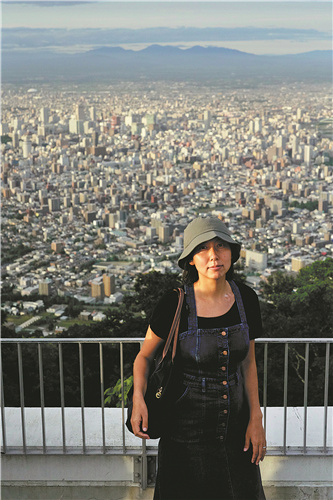Writer sheds light on lives of urban women
By Fang Aiqing | China Daily | Updated: 2021-07-23 07:50

Whenever a young, female author releases a modern metropolitan fiction, it is often categorized as a work of "feminine literature" and readers will nearly always speculate on whether or not the plot is derived from the writer's own experiences.
It's a puzzle for women of words as to why people describe them as "female writers" while, without thinking, simply refer to their male counterparts as just "writers".
And reacting to the rise of female consciousness and autonomy, the media is often keen to paint young female writers as some sort of faddish social phenomenon.
However, Ji Xiaoyi, who operates under the pen name of Liao Jing, stands for the uniqueness and independence of individual female writers and calls for a wider vision and more subtle observation toward young city dwellers from various social backgrounds.
Her latest novel, Wan Hun (A Late Marriage), is the story of a woman, Huang Wansi, in her early 30s, who has achieved nothing major working as a midlevel human resource worker in Beijing and has just tied the knot with a man that's suitable in every aspect, so that society perceives it as a "good marriage".
Huang, coming from a rural family that relies on her for financial support, but is as emotionally distant as it is physically, struggles to achieve a consistent sense of security in both work and intimacy.
Huang's story is not dramatically beyond a normal life. As the novel progresses, readers get to know Huang's background and personality to the extent that they are able to predict her reaction to any possible major event that might crop up later in her life.
Xi Shan, editor of the book, says the author has been "gently and sincerely" observing and feeling the lives of people in the city where she was born and still resides, sharing her thoughts in her work in order to create a dialogue with contemporary readers.
Xi Shan has noticed that many recent books centering around metropolitan, or urban, themes have delved more deeply into issues such as women's lives, an anxiety toward children's education and the growing generation gap.
The stories in these books are set in different cities, but show similarities in their meticulous description of their characters' inner thoughts. They offer profound insights into intimacy and acutely capture the moral ambiguity of real life, she says.
In Ji's novel, with no obvious shortcomings that Huang can identify in her new husband, Yang Hao, she begins to doubt why a socially well-adjusted man with a considerable income, a good education and an affluent family would fall in love with, and marry, a woman like her-a rural migrant who is embarrassed about her family and origins.
























